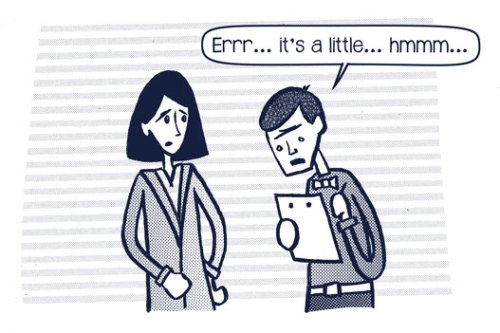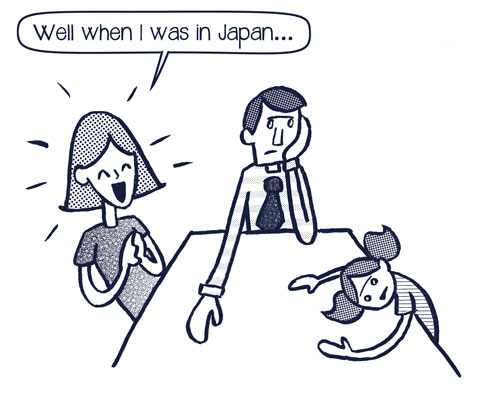When a person returns to her home country – for vacation, for furlough, or permanently – tales of the land she just left will creep into her conversation. Sometimes we’re homesick for our adopted home. Frequently most of the stories from the past few years of our lives involve our adopted home in some manner. More likely than not, we wish there was someone who knew what we were talking about. When relief comes, it doesn’t necessarily arrive in someone who was in the same country or who spoke the same language. A taste of “home” comes when we meet someone who knows what it is like to navigate life cross-culturally. If we don’t have someone like that right in front of us, reading a book or watching a movie can have the same effect.
I’ve been back just shy of three months now. I’m staying with my parents in a very rural area. They travel a lot but they’ve never LIVED outside of the country. In every other way my family is providing the support I need. For the emotional debriefing I do through reminiscing shared experiences, I have M*A*S*H*. Yes, that’s right, the television show that was on in the 1970s. My Dad watches it twice a day, Monday through Friday, and there are so many ways in which I resonate with that mobile medical unit.
And that brings me to my list: The Top Ten Ways M*A*S*H* Is Similar To Being An Ex-Pat
10. A River of Liver and an Ocean of Fish – In Season 3, Episode 11, Hawkeye rants about how they’ve been served the same food – liver and fish – for multiple consecutive days. He creates a minor riot as the entire mess tent begins chanting, “We want something else!”
I may never have thrown a tantrum about it, but I put away more white rice and fish than I cared to in Japan. And 15 months into my stay I made it my goal in life to avoid eating miso soup. For someone else it might be rice and beans. Or that grainy tubular carb I ate in Uganda. But at some point almost all of us want to stand up and yell, “We want something else!”
9. A Book in English Is Like Gold – In Season 6, Episode 6, B.J. Hunnicut receives a mystery novel in the mail. And everyone wants to read it. Not because everyone is into mysteries but just because they want to hold in their hands a book written in English that has nothing to do with medicine or war. “What’s taking you so long?” Hawkeye nags. “I’m savoring it,” Hunnicut replies.
In my 12 person group of ex-pat English teachers, we had a strange assortment of books that had been mailed over or left behind by previous teachers. Yes, we all had easy internet access. But sometimes we just wanted to hold a book in our hands and read. Maybe I was like that more than the others, for I kept the bulk of the library in my apartment. But everyone had at least a few books. It was just nice to know they were there.
8. Strange Bedfellows – The three surgeons at the M*A*S*H* unit share a tent. And they don’t get along. The first half of the series it is Frank who is irritated by Hawkeye and Trapper, and the second half of the series it is Winchester who trades barbs with Hawkeye and Hunnicut. But they don’t have a choice. They work with each other, they eat with each other, and they share a room with each other.
It’s so cliche it’s hardly worth saying, but there is almost certainly someone on your team with whom you don’t particularly gel. And the closer you have to work with them the worse it is. But we deal, because we have to.
7. Sometimes, you just need to go a little crazy – In Season 7, Episode 2, Hawkeye gets sick of the war. I mean really sick of the war. He hops in a jeep and drives to where peace talks are being held. Later, when the MPs show up, Colonel Potter intercedes for Hawkeye, saying that while it was outside of normal army conduct, Hawkeye’s actions boosted morale for everyone at their camp. And, indeed, Hawkeye’s campmates welcome him back with party where everyone has abandoned the olive green of their uniforms and is wearing bright red.
The best times I had in Japan were the ones in which I went a little crazy: when the whole gang stayed up all night at Round 1 (like Chuck E’ Cheese for grownups) for Bryan’s, and two years later for Beau’s, birthday. Or the free Monday between two high pressure weeks when three of us snuck down to Tokyo and went to Disney Sea. A quick trip like that might not seem restful, but that day at Disney refreshed my spirit in a way I desperately needed those next two weeks.
6. Sometimes everyone really is just a little crazy – In Season 6, Episode 4 a psychiatrist happens to be visiting, and Colonel Potter finds a way to urge everyone to pay him a visit. Some, like Major Houlihan, are in denial about the stress they are under. Others know something is wrong, but recognize that the fundamental stress they are under can’t be cured by one therapy session.
The members of the M*A*S*H* unit are under a lot of stress because it’s war. We’re under a lot of stress just by definition of it being cross-cultural living. Not everyone will admit the waves of culture shock that go by. But it is there: affecting our daily lives, pushing buttons, and often blatantly obvious to our teammates even if it isn’t obvious to us.
5. When others leave, a piece of us dies – In Season 3, Episode 24, Lt. Colonel Blake receives his discharge papers and prepares to go home. Everyone is both ecstatic for him as well as sad.
One year after I arrived some of my closest friends on the team returned to the U.S. The next day I had to keep reminding myself that they hadn’t died. Because that is what it felt like.
4. Oh, how we treasure those letters from home – In Season 6, Episode 21 Major Houlihan asks if Captain Hunnicut and Major Winchester have plans for the evening. “I have a letter from [my wife] that I’ve only read twice,” Hunnicut replies.
I threw away a lot of things when I loaded up two suitcases and flew back. But I couldn’t bear to throw away any letters. They were too precious.
3. He Knows When You’re Awake – The M*A*S*H* unit lives in tents, so everyone knows everything about everyone. Except they still keep secrets from each other. And their secrets end up being the things they should share, because often they need a shoulder to cry on, or a hug.
Most of my team lived in the same building. We each had our own apartment, but the walls were thin. I could tell when Rachel was skyping with her family. I knew when Esther was awake because I could hear her walking across my ceiling. During the summer, with our windows open, it was worse: I could hear Celeste sneeze from two apartments away, and I’d call out a cheery, “Bless you!” But we didn’t always tell each other the hard stuff. I didn’t tell my teammates the things of my soul and I kept my secrets. Life isn’t a television show, so I don’t know if it was better that way or not.
2. I feel old – Season 7, Episode 4 is made up of a series of interviews. In one poignant scene, Major Houlihan admits, “I feel old. Older than I ever expected to feel.”
Major Houlihan is rarely the character I resonate with in any episode, but in this scene she struck a chord. For though I’m in my early 30s, these past few months I’ve repeatedly mused about how old I feel. It isn’t the type of thing I tell most people because I don’t want to be brushed off with a, “You’re still young!” Chronologically, yes, I am. But my soul feels as if I’m in my 70s, as if I’ve already lived enough for a lifetime.
1. We keep going, even when it is hard, because it is important – the “classics” channel that my father watches, the one which features all of these M*A*S*H* episodes, broadcasts commercials featuring actors who played in those classic sitcoms and dramas. In one Mike Farrell, who plays Captain Hunnicut, recounts that the appeal of M*A*S*H* is that even though most people haven’t been to war, everyone can relate to the feeling of doing something that takes us away from our family and friends and the comforts we would like, and we do it because it’s important.
In the end, it is nice to know someone else gets it. That even if people don’t understand why I chose to teach English in Fukushima prefecture for three years, the people who like M*A*S*H* might get it. And there are enough of those people out there that the show was kept on for eleven seasons. It’s enough.



 4. You simply forget English words.
4. You simply forget English words.





